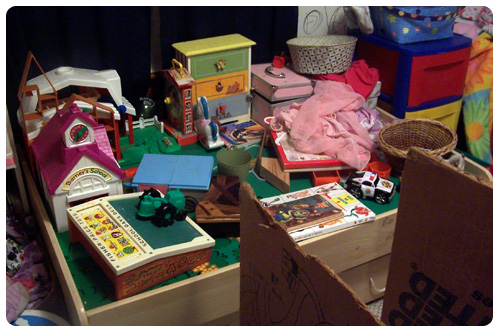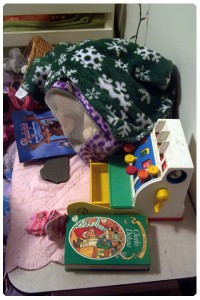 One thing that our son Cameron is good at is common courtesies. He’s very good at remembering to say “please”, and he’s nearly flawless with “thank you”, and he’s famous for his, “Wehcm.” (That’s his version of “you’re welcome”, said quickly with an emphasis on the harder “m” sound to end the word.)
One thing that our son Cameron is good at is common courtesies. He’s very good at remembering to say “please”, and he’s nearly flawless with “thank you”, and he’s famous for his, “Wehcm.” (That’s his version of “you’re welcome”, said quickly with an emphasis on the harder “m” sound to end the word.)
Not sure why he picked up on the practice more than the other children, but it comes natural to him, whereas it’s less so among his siblings.
This past weekend I was talking with our niece about life as a big family. She has said before, and maintains still, that she wants to have lots of kids some day. (And many times hence I have brought up that topic, to ascertain what would create such a desire in her…) 🙂 I mentioned to her that I’ve learned through the years (especially since our family has grown larger) that patience is a huge key to life as a large family.
“Do you feel like you’re a patient person?” I asked her.
“Well, yes… unless they don’t behave,” replied she.
(Now, stop! It’s not nice to snicker!)
She added, “Like, your kids. They are the most well-behaved kids I know!”
After letting a quick laugh escape from my lips, I informed her that they are definitely not always “well-behaved”. In fact, many and sundry images of that non-well-behaved behavior flashed into my mind as I uttered those words. And I remembered why I said patience is very important…
“You know,” I continued, “One thing—maybe, the thing—we really try to stress with our kids is to think of other people: consider others more than yourself. I think that’s probably a reason that you saying they are the ‘best behaved kids’.”
She agreed, and we talked a bit more, but I dwelled on that thought a bit. I wondered if maybe that is the core of what I want to pass along to our kids.
Certainly I want them to know Jesus, and to learn to listen to Father and walk in step with the Spirit. And I want them to understand the Good News, that ‘while we were yet sinners, Christ died for us’; and, ‘So now we can rejoice in our wonderful new relationship with God because our Lord Jesus Christ has made us friends of God.’; and that, ‘Even before he made the world, God loved us and chose us in Christ to be holy and without fault in his eyes. God decided in advance to adopt us into his own family by bringing us to himself through Jesus Christ. This is what he wanted to do, and it gave him great pleasure.’
That’s most important, and I believe when we know that—at our core, as our foundation—then we are more able, more ready to consider others. When we are valued, we can more properly value others.
And, at least in some way, I hope that Cameron’s simple expressions of courtesy show not only his consideration and respect for others, but that it evidences at least the beginnings of a deeper reality from whence such behavior has its source. And similarly that the ‘good behavior’ exhibited by his siblings is a fruit of a deeper root rather than a mere act of habit or will.
That is my hope. And my goal.
As I thought of this today, I decided to make homemade Thank You cards for all of my kids (and Jen) for the Christmas gifts they thoughtfully purchased, wrapped, and gave to me. I drew a little Christmassy drawing on the front of each and wrote a one- or two- sentence personal greeting inside.
Cam has had a really hard day today, so when I first saw him (after a work day in my office) he was crying and very frustrated. After making sure I had his attention, I gave him his card, and asked if he’d like me to read it to him. He agreed, and when I did, a smile came across his face and he asked me to read it again. And then again. His countenance was very much lighter, and I made his day just by saying a personal Thank You. (And I don’t think his card even had a “Thank You” in it! Ha!)
Little things matter, to be sure. And even more so if they come from a bigger, deeper foundation of thinking of others more than yourself.
Don’t be selfish; don’t try to impress others. Be humble, thinking of others as better than yourselves. Don’t look out only for your own interests, but take an interest in others, too.
Treat others in the same way that you would want them to treat you.
A simple please and/or thank you is a good step in that direction. (Or a good evidence of a deeper peace where such courtesy has its origin.)
I hope you have a chance offer this simple courtesy—or maybe be on the receiving end—sometime soon.
And… Thank you for reading. 🙂

 Water, hydrogenated vegetable oil (coconut & palm kernel oils), high fructose corn syrup, corn syrup, skim milk, (<2%...) light cream, sodium caseinate, natural and artificial flavor, xanthan and guar gums, polysorbate 60, sorbitan monostearate, sodium polyphosphate, beta carotene (color).
Water, hydrogenated vegetable oil (coconut & palm kernel oils), high fructose corn syrup, corn syrup, skim milk, (<2%...) light cream, sodium caseinate, natural and artificial flavor, xanthan and guar gums, polysorbate 60, sorbitan monostearate, sodium polyphosphate, beta carotene (color).
 Idaho® potatoes, with emulsifier (mono and diglycerides from vegetable oil) and preservative (sodium acid pyrophosphate, sodium bisulfite, citric acid, mixed tocopherols).
Idaho® potatoes, with emulsifier (mono and diglycerides from vegetable oil) and preservative (sodium acid pyrophosphate, sodium bisulfite, citric acid, mixed tocopherols).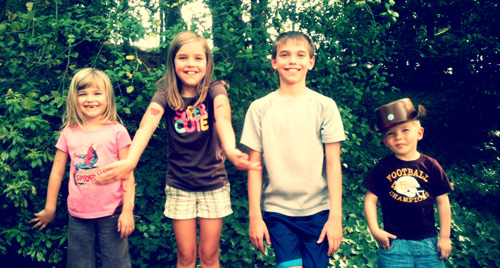

 Or, even when it doesn’t. Lemonade still tastes great. Who doesn’t love a nice, cold glass of lemonade on a hot summer’s day?
Or, even when it doesn’t. Lemonade still tastes great. Who doesn’t love a nice, cold glass of lemonade on a hot summer’s day?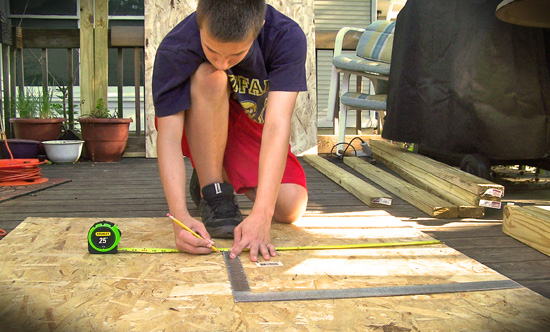
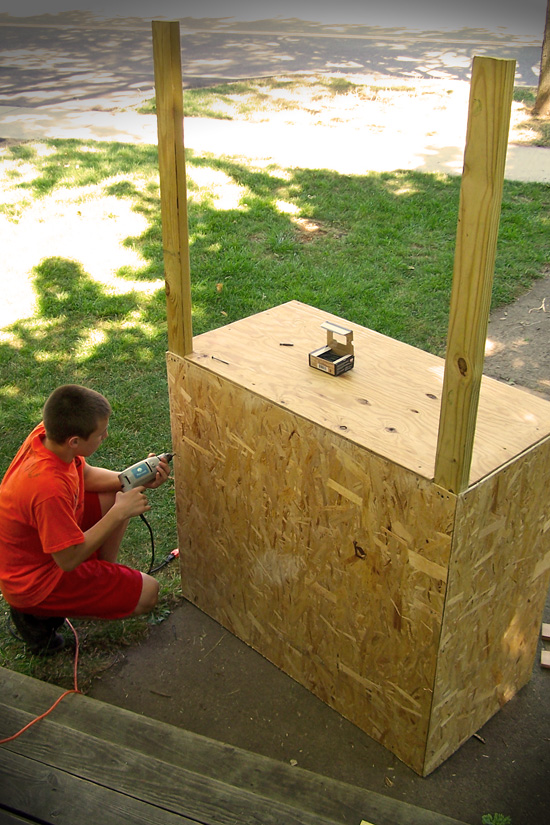
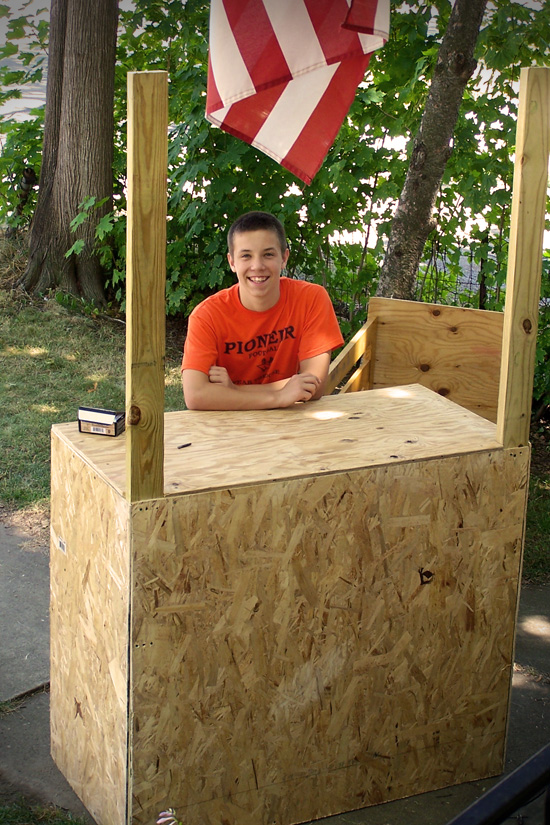
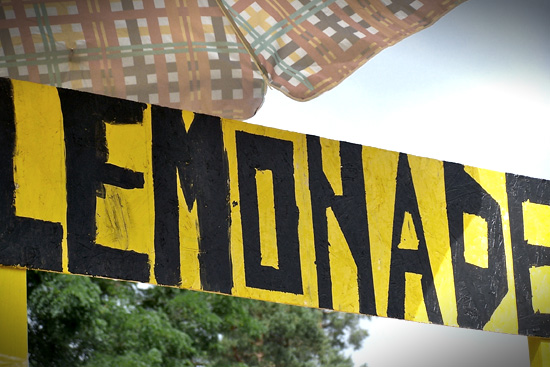
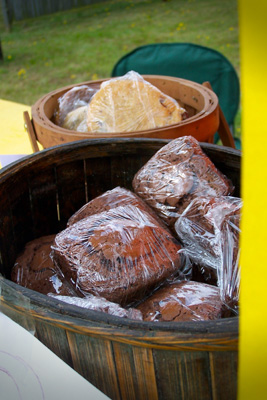 Some friends of ours had set up a lemonade stand of their own last year in a prime location for all of this visiting traffic, and in speaking with them last week, we both thought it would be fun to set up a schedule of “shifts” at the lemonade stand and have the whole week of the event covered. Great plan! They offered some of their resources, and Ian offered his stand (they even gave him a donation toward his building costs!) and we set to work on finalizing the last few details. (Like, getting permission from the business who owns that property, and determining when to have people at the stand, how much food and drink to have ready, etc.)
Some friends of ours had set up a lemonade stand of their own last year in a prime location for all of this visiting traffic, and in speaking with them last week, we both thought it would be fun to set up a schedule of “shifts” at the lemonade stand and have the whole week of the event covered. Great plan! They offered some of their resources, and Ian offered his stand (they even gave him a donation toward his building costs!) and we set to work on finalizing the last few details. (Like, getting permission from the business who owns that property, and determining when to have people at the stand, how much food and drink to have ready, etc.)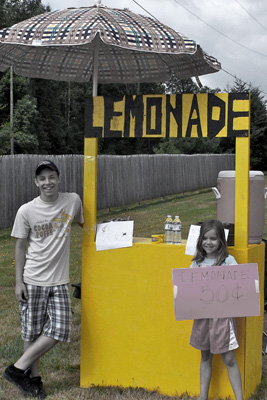 The coolest thing about all of this is how much it has been initiated by our kids (Ian especially, but don’t discount 8-year-old Kirstie. She loves it, too!) and how much work they are putting into making it a success. If you could have seen them waving in the cars today…
The coolest thing about all of this is how much it has been initiated by our kids (Ian especially, but don’t discount 8-year-old Kirstie. She loves it, too!) and how much work they are putting into making it a success. If you could have seen them waving in the cars today…